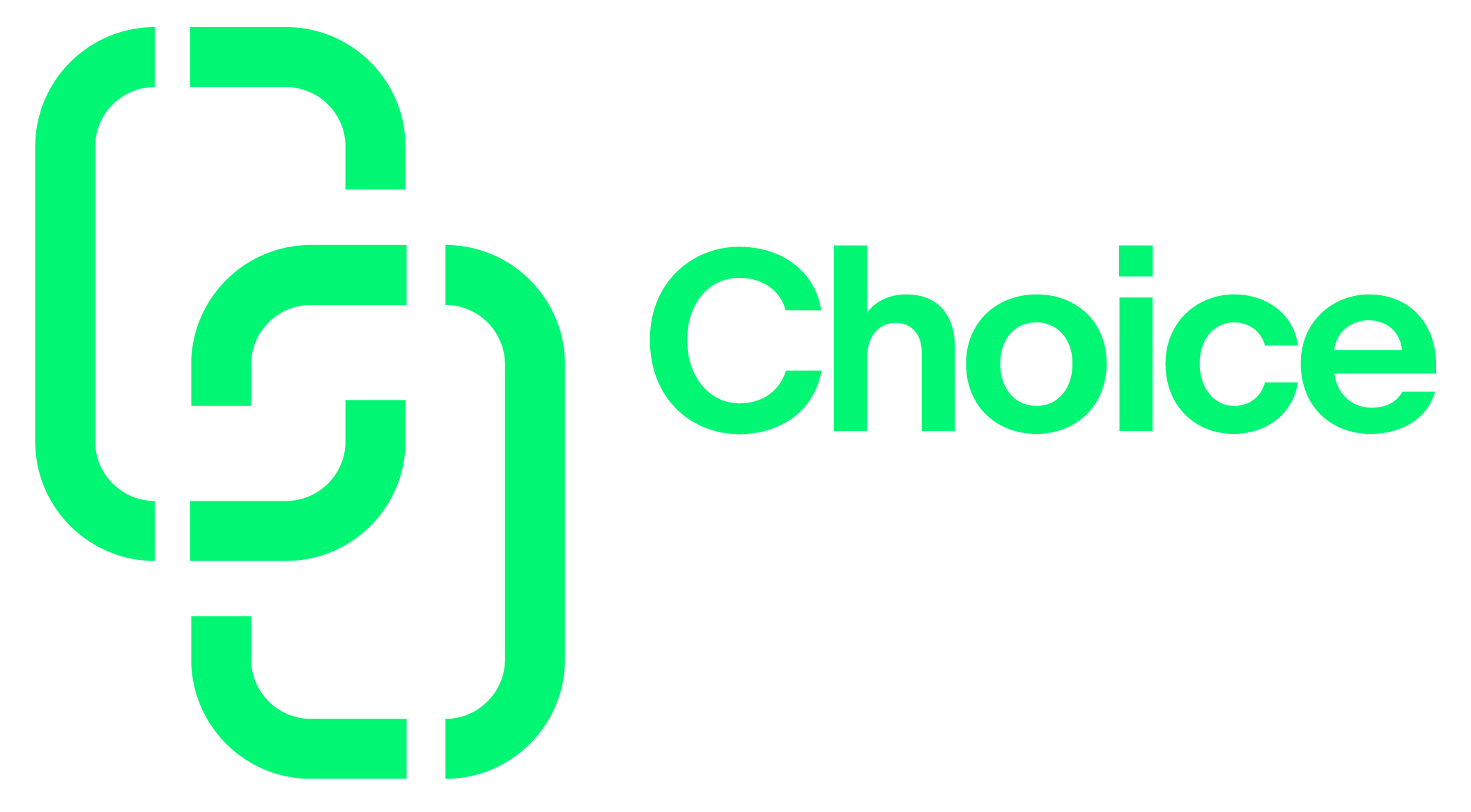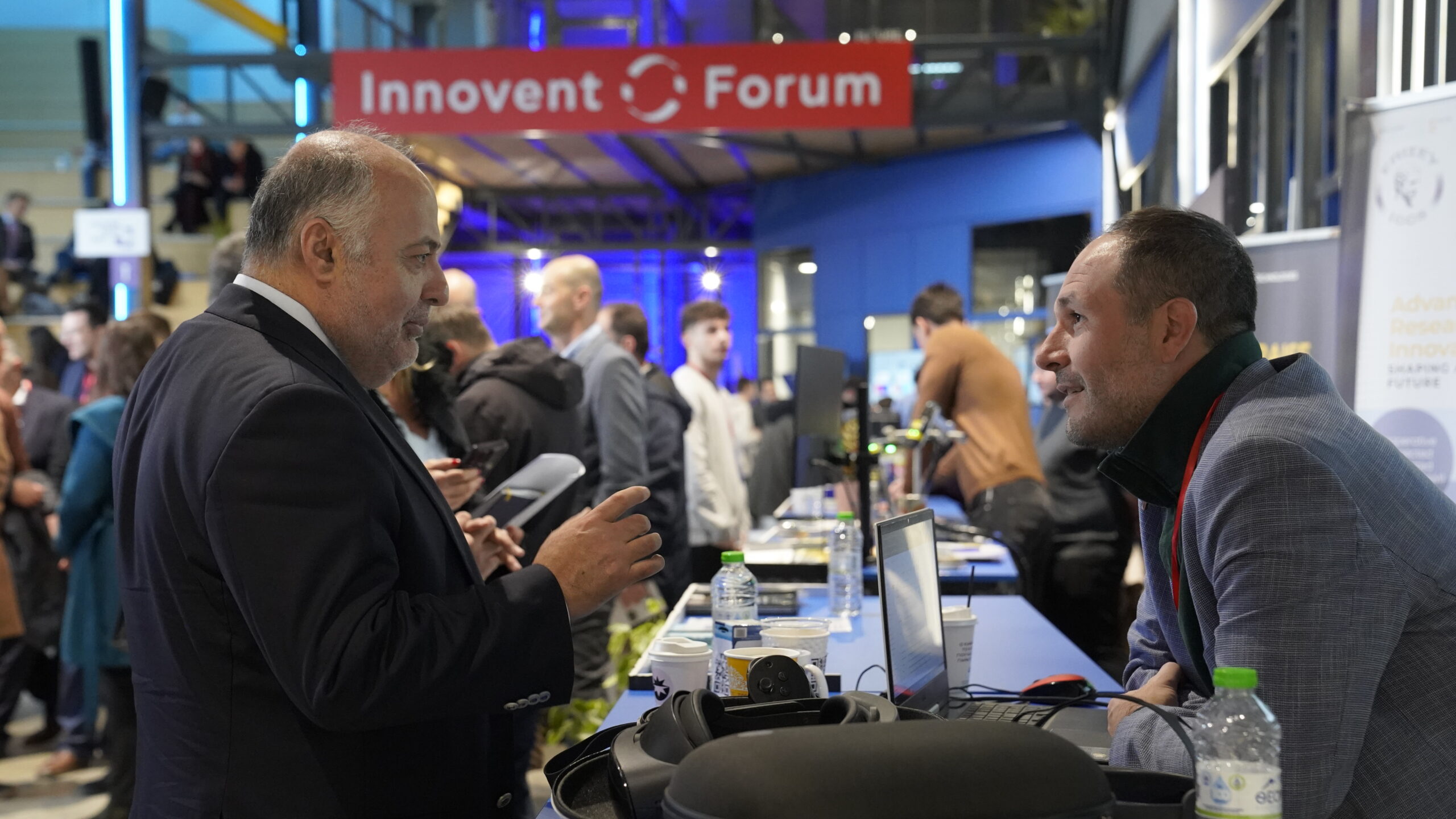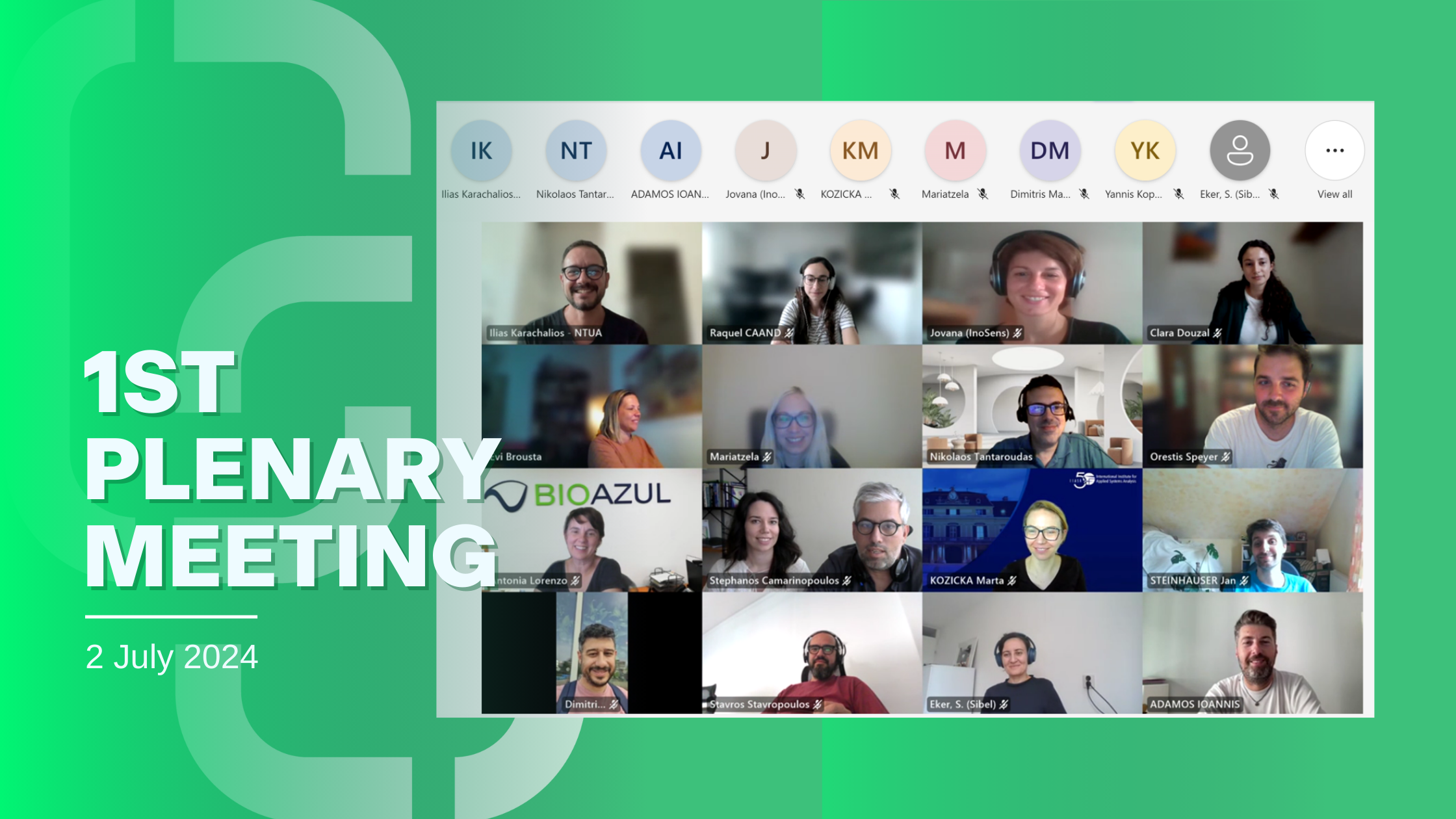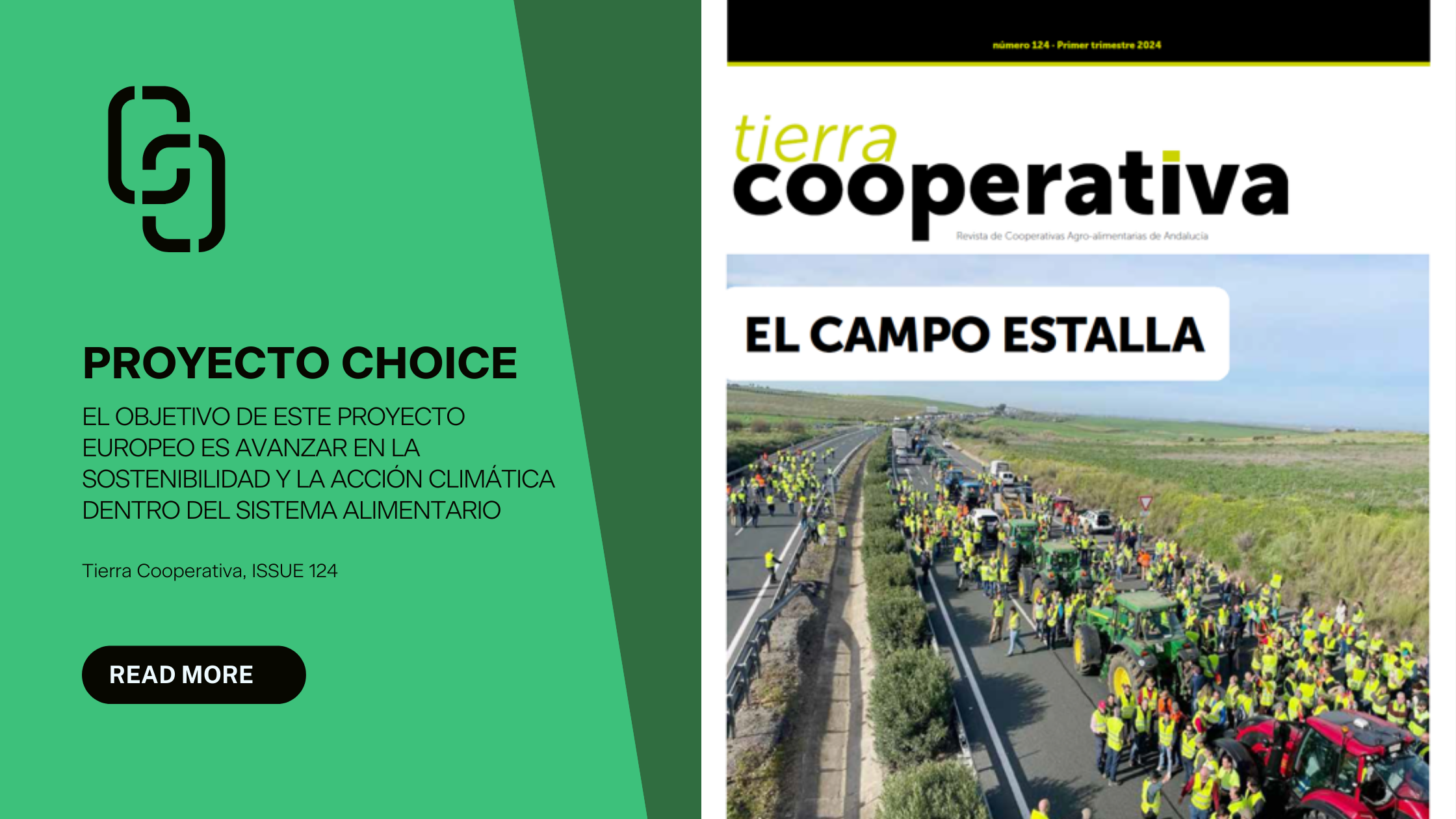
CHOICE’s Spanish Pilot Advances Livestock Sustainability in Second Participatory Lab
Introduction
Following the first Participatory Lab in Osuna, which introduced key sustainability challenges for both olive groves and livestock farming, the CHOICE European project hosted its second Spanish Participatory Lab, focusing exclusively on the livestock sector.
Held on 30 January 2025 at Cooperativas Agro-alimentarias de Córdoba and co-organized by Cooperativas Agro-alimentarias de Andalucía and Bioazul, this second Participatory Lab provided a structured platform for key stakeholders to discuss and review the results of the first lab, validate and prioritise the conversions identified and define their associated variables.
The discussions revolved around major impact areas, transformation mechanisms, and the adoption of sustainable farming practices, ensuring that the livestock sector is aligned with long-term environmental goals.
- Manure and Slurry Management: Addressing regulatory barriers and environmental concerns related to waste disposal and land restoration.
- Livestock Density Optimization: Evaluating stocking rate adjustments to balance productivity and ecological impact.
- Digitalization and Data Integration: Exploring smart technologies for improved resource efficiency and decision-making.
- Animal Diet Optimization: Identifying methane-reducing feed strategies to lower livestock emissions.
- Sustainability Certifications: Understanding market demands for animal welfare and environmental labeling.
- Soil Regeneration & Vegetation Covers: Promoting regenerative practices to enhance pasture health and biodiversity.
- Renewable Energy Adoption: Expanding the use of solar power and energy-efficient systems in livestock farming.
Key Discussions and Outcomes
The second Participatory Lab built upon the results of the first session, beginning with a brief presentation of the CHOICE project and its application in Spain. Participants revisited the findings from the first lab, where both olive groves and livestock farming were discussed, before shifting focus to validating proposed sustainability measures and addressing sector-specific barriers in livestock farming. Representatives from leading agricultural cooperatives, including Merinos del Sur, Remedios-Picasat Cooperative, Corsevilla, COVAP, Ovipor, and Dehesas Cordobesas, as well as CEIA3, which is the Campus of International Agri-food Excellence, reviewed previous results and engaged in targeted discussions on key livestock sustainability challenges, such as:
Addressing Barriers and Enabling Change
A key challenge identified in the session was the strong dependence of sustainability initiatives on political and regulatory frameworks. Participants highlighted policy barriers in manure and slurry management, which affect implementation at the farm level. They also emphasized the gap between research and practical applications, particularly in optimizing livestock diets for methane reduction. Additionally, the discussion underscored the need for stronger incentives to make renewable energy and regenerative agriculture more attractive to livestock farmers.


Next Steps: Strengthening Stakeholder Collaboration
The lab concluded with a commitment to action, focusing on:
- Developing strategies for improved data collection and sustainability assessment in livestock farming.
- Enhancing knowledge-sharing between cooperatives, researchers, and policymakers to bridge the gap between research and practice.
- Expanding awareness campaigns to drive engagement and adoption of sustainable practices across the livestock sector.
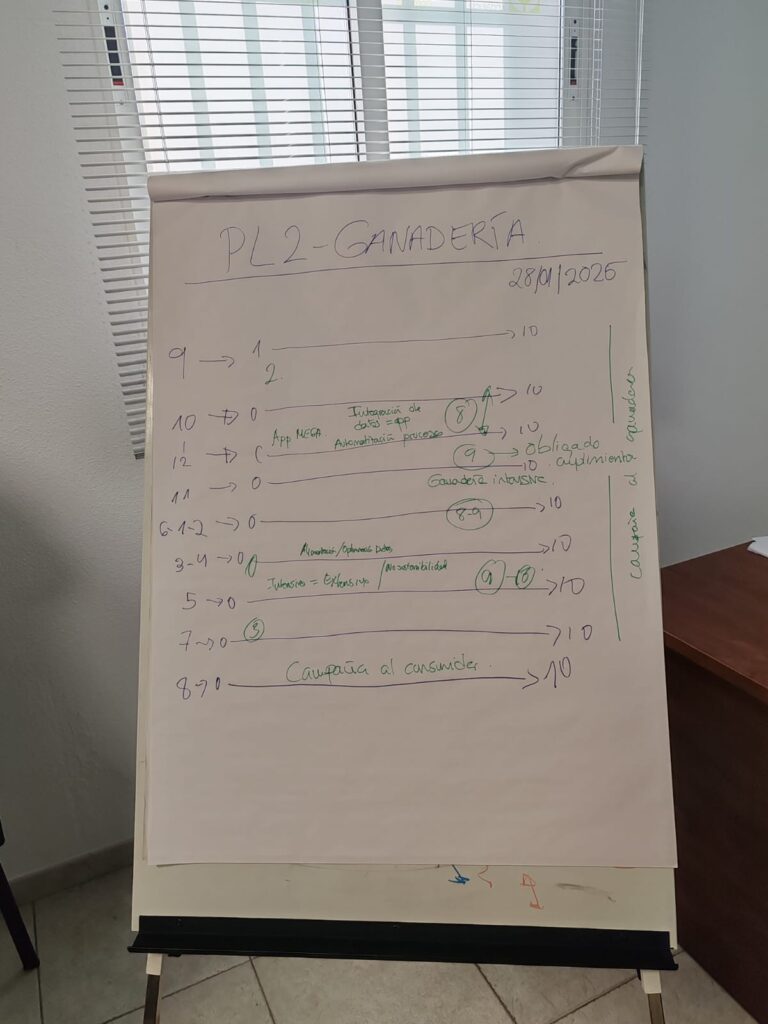
As part of CHOICE’s ongoing efforts, the next Participatory Lab in Spain will focus on olive groves and is scheduled for 14 February 2025. This session will build upon previous discussions, addressing sector-specific sustainability challenges and further refining strategies for sustainable agricultural transitions.
Stay tuned to discover the outcomes of this co-design effort within the Spanish pilot and the results of the discussions on sustainable olive grove management.
Learn more about the Spanish pilot’s objectives at the following webpage.
